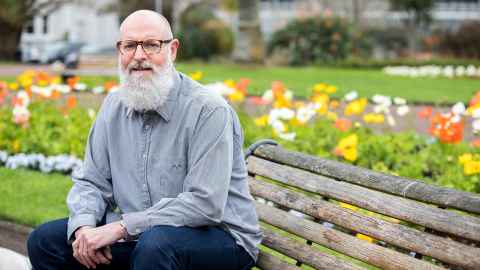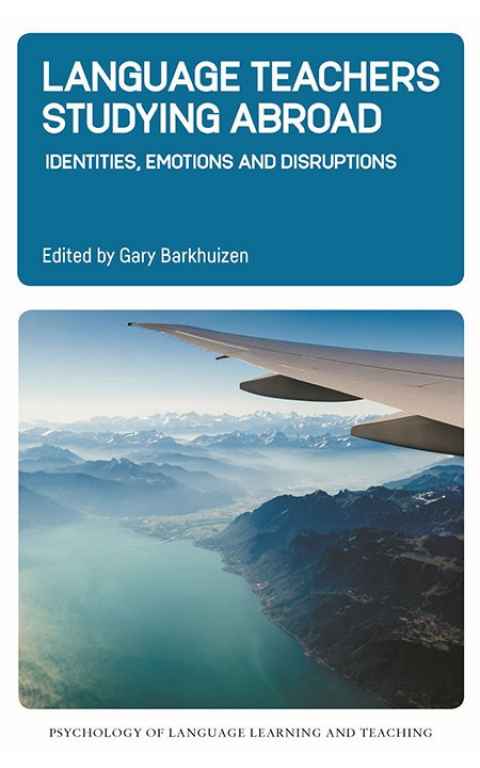Lost in translation? Language teachers studying abroad in a Covid world
25 July 2022
Studying abroad during a time of major global disruption is the focus of a new book edited by University of Auckland Professor of Applied Linguistics Gary Barkhuizen.

Overseas study is usually considered a valuable opportunity for cultural exchanges, personal growth, relationship-building and language enhancement.
But what happens, for example, when a global pandemic brings international mobility to a standstill, stranding students in a country under lockdown conditions?
Language Teachers Studying Abroad (Multilingual Matters, 2022), edited by University of Auckland applied linguistics professor Gary Barkhuizen, explores this rich topic, focusing specifically on the experiences of language teachers (of English, German, Spanish and Chinese, among others) in countries other than their own; for anything from a few weeks to much longer stays.
Arranged under broad headings like ‘disruption’, ‘identity’ and ‘relationships’ with a number of chapters devoted to Covid-19, the book is part of a larger series edited by Sarah Mercer and Stephan Ryan, which looks at the psychology of language learning and teaching.

Professor Barkhuizen says Covid changed the whole direction of the book.
“With the borders closing, no air travel, people not being able to get home, the emotional aspect of the studying abroad experience became that much harder; with so many expectations and anticipations not being fulfilled, so the book was quite timely in a strange way. It wasn’t planned for a time of disruption, but that’s the book we’ve got.”
He says the book’s content is all first-hand accounts, from either pre-service (trainee) teachers themselves or teacher educators and programme organisers, and the focus is on original data and field research.
“It deals with the real lives of real people, and their emotional and psychological experiences of study abroad, study disrupted or, as a response to Covid, their experience of studying online in a virtual world; across countries and cultures.
“These are accounts from people in a different country, getting a glimpse of a different way of life, a different culture, different teaching practices and different educational systems.”
With the borders closing, no air travel, people not being able to get home, the emotional aspect of the studying abroad experience became that much harder.
He says broader political issues also come into play.
“One chapter, for example, deals with a group of Cambodian students studying in New Zealand and how lockdowns affected them, both learning wise and emotionally.”
Another looks at who actually benefits from international education and who is excluded; study abroad in relation to colonisation and power.
“This is when teachers or students go from wealthier countries to less wealthy countries and do some teaching practice, observe some classrooms and then leave; and it's like they are taking an experience from these communities and then disappearing back to their home countries. That's really being critiqued because what are you giving back to that community?”
Another looks at the experiences of student teachers from the US in the Dominican Republic, highlighting their shocked response to the poverty and bringing up the ethics of being ‘spectators’ of what one described as “poverty porn”.
Professor Barkhuizen believes the book will be interesting for language researchers, teacher educators, programme organisers and anyone engaged in global studies and international education.
“Organisers and students of these programmes now have to reconsider what the goals of study abroad are in a (post) Covid world.”
Language Teachers Studying Abroad also includes the work of Faculty of Arts colleagues Rosemary Wette, Diana Feick and Danping Wang, and Christine Biebricher from the University’s Faculty of Education and Social Work.

Media contact
Julianne Evans | Media adviser
M: 027 562 5868
E: julianne.evans@auckland.ac.nz